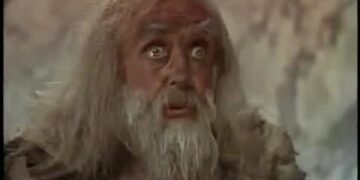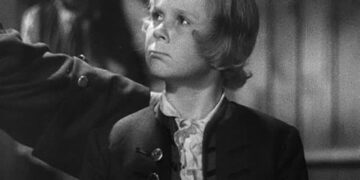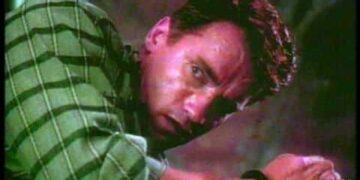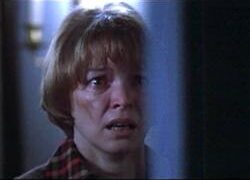“The Last Station” is a fascinating exploration of love, loss, and literary legacy. It’s based on Jay Parini’s historical novel of the same name, which in turn is inspired by the last year of Leo Tolstoy’s life.
This introduction aims to provide a brief overview, setting the scene for our deep dive into the book and its subsequent movie adaptation.
The book, published in 1990, is a clever blend of fact and fiction, providing an intimate look at Tolstoy’s life, his tumultuous relationship with his wife, and the ideological battles that surrounded him.
Its narrative is echoed in the 2009 film adaptation, directed by Michael Hoffman, which beautifully captures the spirit of the book and the tumult of Tolstoy’s final days.
It’s a story that resonates with readers and viewers alike, not just for its historical significance, but for its universal themes of love, conflict, and the quest for meaning.
The Last Station is a compelling journey into the heart of a literary genius, a journey we’ll now embark on together.
Comprehensive Book Summary of ‘The Last Station’
“The Last Station” is a novel that paints an intimate portrait of the final year of Leo Tolstoy’s life. The narrative unfolds through the perspectives of multiple characters, each with their own unique view of the great writer and the turmoil that surrounds him.
The book delves deeply into the complexities of Tolstoy’s life, his philosophical ideals, and the intense emotional strife that permeates his household.
The story begins with the arrival of Valentin Bulgakov, a young and idealistic private secretary dispatched by Vladimir Chertkov, the leader of the Tolstoyan movement.
Chertkov hopes that Bulgakov will help him gain control over Tolstoy’s copyrights, which he wishes to relinquish to the public domain. Bulgakov, however, finds himself torn between the warring factions within the Tolstoy household.
On one side is Sofia, Tolstoy’s wife of 48 years, who resents the influence of the Tolstoyan movement over her husband and fears the loss of their family’s financial security. On the other is Chertkov, who fervently believes in Tolstoy’s vision of universal love and non-violence, and sees Sofia as an obstacle to its realization.
This conflict forms the backdrop to a tale of ambition, love, and the struggle for legacy, ultimately culminating in Tolstoy’s death at Astapovo Station.
Deep-dive Movie Analysis of ‘The Last Station’
The movie adaptation of “The Last Station” is a masterful retelling of the novel, capturing the essence of its narrative while adding its own unique cinematic flair.
Directed by Michael Hoffman and featuring an all-star cast, including Helen Mirren as Sofia and Christopher Plummer as Tolstoy, the film brings the book to life with remarkable authenticity.
One of the film’s most striking elements is its cinematography. Through the lens of Sebastian Edschmid, the Russian countryside becomes a character in itself, reflecting the mood and tone of the narrative.
The visuals are beautifully complemented by the performances, with Mirren and Plummer delivering nuanced portrayals that capture the complexity of their characters.
The film, however, is more than just a visual spectacle. It delves into the same thematic depths as the novel, exploring the struggle for legacy, the power of love, and the ideological battles that marked Tolstoy’s final days.
Its narrative is woven with emotional intensity, drawing the viewer into the heart of the conflict and inviting them to reflect on the universal truths it reveals.
The Intriguing Differences Between the Book and the Movie
Despite the fidelity of the film adaptation, there are intriguing differences between “The Last Station” book and movie.
One of these lies in the narrative structure. While the novel unfolds through multiple perspectives, the film primarily focuses on Bulgakov’s point of view, offering a more streamlined narrative that serves the medium.
Another difference lies in the portrayal of the characters. While the book delves deeply into the complexities of each character, the film, due to its limited runtime, focuses more on the central characters of Tolstoy and Sofia.
This focus, however, allows for a more intense exploration of their relationship, bringing to the fore the love and conflict that define it.
Finally, there are subtle differences in tone. The book, with its detailed narrative and philosophical musings, has a more introspective tone.
The film, on the other hand, has a more dramatic tone, heightened by its visual storytelling and the performances of its cast.
Detailed Guide for Parents
The Last Station, both as a novel and a film, explores mature themes such as love, ideology, and legacy.
As such, it might not be suitable for younger audiences. However, for teens and adults, it offers a wealth of educational and emotional experiences.
The book, with its historical context and philosophical discussions, can serve as an excellent educational tool, introducing readers to Tolstoy, his ideals, and the socio-political landscape of his time.
The film, with its powerful performances and visual storytelling, can offer a more emotional experience, helping viewers empathize with the characters and understand their struggles.
However, parents should note that both the book and film contain scenes of conflict, both physical and emotional, and discussions on death. Therefore, it’s advisable to provide context and guidance, especially for younger viewers and readers.
When and Where ‘The Last Station’ Takes Place
The Last Station unfolds in 1910, during the final year of Leo Tolstoy’s life. This was a time of great turmoil, both in Tolstoy’s personal life and in the broader socio-political landscape of Russia.
Most of the narrative takes place at Yasnaya Polyana, Tolstoy’s estate, and Astapovo, the remote railway station where he spent his last days.
The Real-life Film Locations of ‘The Last Station’
The film adaptation of The Last Station was shot on location in Germany, with the beautiful Schloss Stülpe serving as the stand-in for Yasnaya Polyana.
Other locations include the historic city of Leipzig and the picturesque landscapes of Saxony and Brandenburg. These real-life locations enhance the film’s authenticity, transporting viewers into the world of Tolstoy.
Who’s Who in ‘The Last Station’: Characters and their Roles
‘The Last Station’ introduces us to a cast of fascinating characters, each with their own unique perspectives and roles in the narrative.
At the heart of the story is Leo Tolstoy, played in the film by Christopher Plummer, a literary giant grappling with his legacy and ideals. His wife, Sofia, portrayed by Helen Mirren, is a passionate and determined woman, fighting for her family’s future.
Valentin Bulgakov, played by James McAvoy, is the young secretary caught in the crossfire of the Tolstoy household, while Paul Giamatti’s Vladimir Chertkov is the leader of the Tolstoyan movement, pushing for the relinquishment of Tolstoy’s copyrights.
These characters, along with a host of others, bring the narrative to life, adding depth and complexity to the story.
Notable Quotes from ‘The Last Station’
‘The Last Station’ is filled with memorable quotes that capture the essence of the narrative and its themes. One of the most poignant is Tolstoy’s declaration that “The only purpose of life is love.
To love and to be loved.” This quote encapsulates the novel’s exploration of love, both in its beauty and its complexity.
Another notable quote is Sofia’s passionate plea to her husband: “I am your work. I am the work of your life.
You’re abandoning it!” This quote encapsulates the conflict at the heart of their relationship, as Sofia struggles to reconcile her love for her husband with her resentment for the ideology that threatens to tear them apart.
Exploring the Soundtrack by Sergey Yevtushenko
The soundtrack of ‘The Last Station’ film, composed by Sergey Yevtushenko, adds another layer of depth to the narrative. Yevtushenko’s music beautifully captures the emotional landscape of the story, from the sweeping romance to the intense conflict.
The score, with its blend of classical and contemporary elements, enhances the film’s atmosphere, transporting the viewer into the world of Tolstoy.
Curiosities About ‘The Last Station’
One interesting fact about ‘The Last Station’ is that Jay Parini, the author of the novel, spent many years researching Tolstoy’s life before writing the book. In fact, Parini even lived in Russia for a while to get a deeper understanding of the culture and context.
Another curiosity is that the film adaptation was initially planned in the mid-90s with Anthony Hopkins and Meryl Streep in the lead roles.
However, it took more than a decade for the film to finally get made, with an entirely different cast.
Tips for Cosplay: Dressing Like Characters from ‘The Last Station’
Dressing like characters from ‘The Last Station’ can be a fun and challenging endeavor. For those looking to cosplay as Tolstoy, a long white beard and a simple peasant’s outfit would be essential.
Sofia’s character, on the other hand, often appears in elaborate period dresses, making her a more complex character to emulate.
For Bulgakov, a simple suit and round glasses would be enough to capture his appearance. Chertkov’s character, portrayed as a stern and serious figure, would require a more formal attire, complete with a dark suit and a commanding presence.
A Look into Jay Parini’s Bio and Works
Jay Parini is a renowned American writer and academic, best known for his historical novels. Born in 1948, Parini has a diverse body of work that includes poetry, criticism, and biography.
He is a Distinguished Professor of English and Creative Writing at Middlebury College in Vermont.
In addition to ‘The Last Station’, Parini has written several other novels that explore historical figures, including ‘Benjamin’s Crossing’ and ‘The Passages of H.M.’.
His work is characterized by meticulous research, rich detail, and a deep understanding of the human condition.
Explaining the Ending of ‘The Last Station’
The ending of ‘The Last Station’ is a poignant reflection on the themes of the narrative. After a long and tumultuous journey, Tolstoy dies at Astapovo Station, leaving behind a profound legacy and a household in turmoil.
The ending is a testament to the power of love and the inevitable nature of death, encapsulating the emotional depth and philosophical musings of the narrative.
Potential for a Remake, Sequel, or Spin-off of ‘The Last Station’
Given the richness of the narrative and the historical context, there is certainly potential for a remake, sequel, or spin-off of ‘The Last Station’.
A remake could offer a fresh take on the story, while a sequel or spin-off could explore the aftermath of Tolstoy’s death or delve into the lives of other characters.
However, any such endeavor would require careful handling to maintain the spirit of the original work and respect the historical facts. As of now, there are no known plans for any such projects.
Other Media by Michael Hoffman
Michael Hoffman, the director of ‘The Last Station’ film, is a versatile filmmaker with a diverse body of work. In addition to ‘The Last Station’, he has directed several other films, including ‘Restoration’, ‘One Fine Day’, and ‘The Emperor’s Club’.
Hoffman’s work is characterized by a keen eye for detail, compelling storytelling, and a deep understanding of his characters. His films often explore complex emotions and relationships, making him a perfect fit for ‘The Last Station’.
Media Similar to ‘The Last Station’
For those who enjoyed ‘The Last Station’, there are several other books and films that offer similar experiences. ‘War and Peace’, Tolstoy’s own masterpiece, is an obvious choice, offering a deep dive into Russian history and Tolstoy’s philosophical musings.
Other books include ‘Anna Karenina’, another of Tolstoy’s classics, and ‘A Gentle Creature’, a novel by Fyodor Dostoevsky that explores similar themes of love and conflict. For films, ‘Doctor Zhivago’, a classic epic set in Russia, and ‘The Death of Stalin’, a satirical take on Russian history, could be interesting choices.
Other Notable Works by Jay Parini
In addition to ‘The Last Station’, Jay Parini has authored several other notable works. His novel ‘Benjamin’s Crossing’ is a fascinating exploration of the life of Walter Benjamin, a renowned German philosopher. ‘
The Passages of H.M.’ is another historical novel that delves into the life of Herman Melville, the author of ‘Moby Dick’.
Parini’s work is characterized by a deep understanding of his subjects, a keen eye for detail, and a compelling narrative style. His novels provide not just a glimpse into the lives of their subjects, but also a reflection on their impact and legacy.
Book Club Questions for ‘The Last Station’
Discussing ‘The Last Station’ in a book club can lead to interesting conversations. Here are a few questions to kickstart the discussion:
- How does the novel explore the theme of love?
- How does the conflict between Sofia and the Tolstoyan movement reflect the larger socio-political landscape of Russia at the time?
- How does the novel portray Tolstoy’s philosophical ideals and their impact on his personal life?
- What does the novel reveal about the struggle for legacy and the role of art in society?
- How do the multiple perspectives in the novel enhance the narrative and our understanding of the characters?
Video Games Inspired by ‘The Last Station’
While there are no known video games directly inspired by ‘The Last Station’, there are several games that explore similar themes or settings.
Games like ‘The Witcher 3: Wild Hunt’ and ‘Red Dead Redemption 2’ delve into complex narratives and character relationships, offering immersive experiences that echo the depth and richness of ‘The Last Station’.
Travel Guide to Visit ‘The Last Station’ Locations
Visiting the real-life locations of ‘The Last Station’ can be a fascinating journey into history. Yasnaya Polyana, Tolstoy’s estate, is now a museum dedicated to his life and works.
Located in Tula Oblast, Russia, it offers a glimpse into Tolstoy’s world, complete with his personal belongings and the landscapes that inspired his works.
Astapovo, the remote railway station where Tolstoy died, is another poignant location. Though it has been renamed Lev Tolstoy, it still retains the old world charm that marked Tolstoy’s final days.
For those looking to visit the film locations, Schloss Stülpe in Germany is a must-visit. This beautiful castle served as the stand-in for Yasnaya Polyana, providing a stunning backdrop for the film.
Conclusion
Unraveling ‘The Last Station’ has been a journey into the heart of a literary genius, a deep dive into a turbulent period of history, and an exploration of universal themes of love, conflict, and legacy.
Whether through the pages of the book or the frames of the film, ‘The Last Station’ offers a compelling experience that resonates with readers and viewers alike.
As we conclude this journey, we invite you to explore ‘The Last Station’ for yourself, to immerse yourself in its rich narrative, and to reflect on its profound themes.
After all, as Tolstoy himself said, “The only purpose of life is love. To love and to be loved.”













